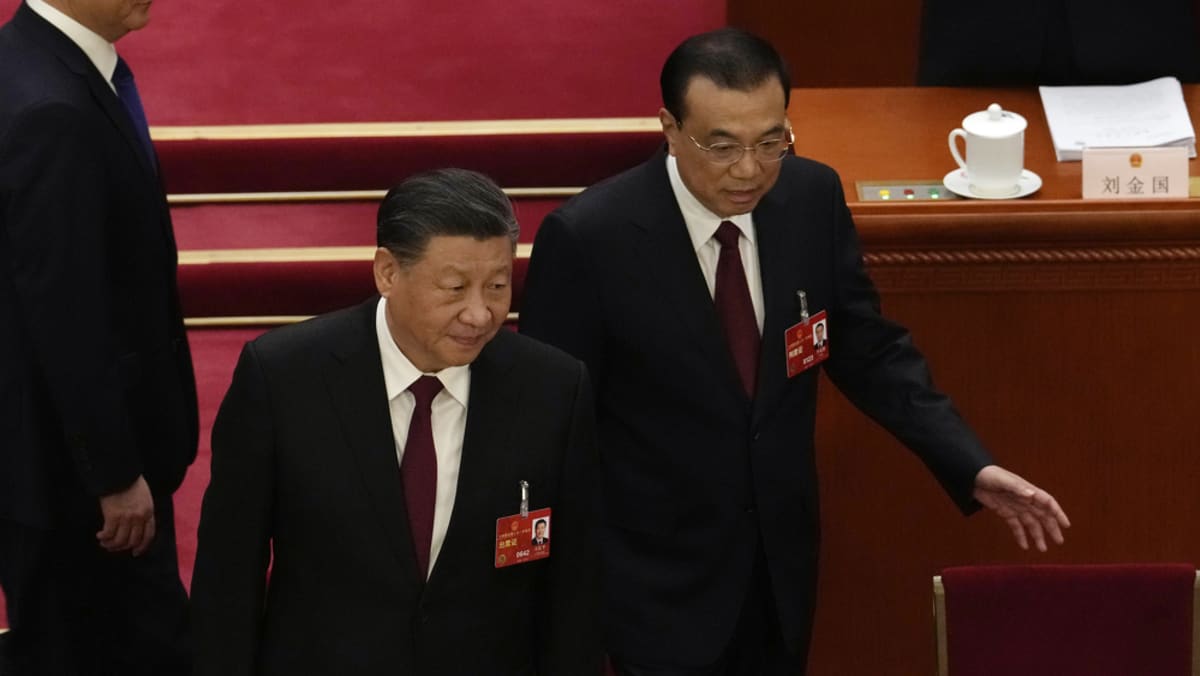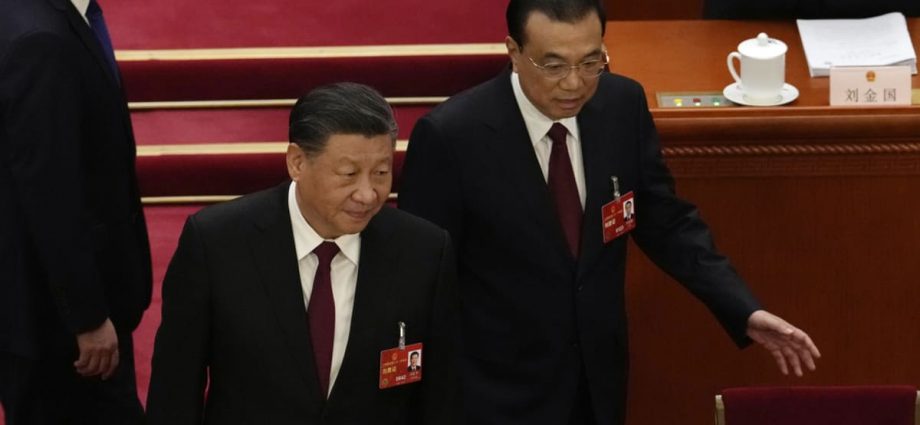
SINGAPORE: What is China counting on to reinvigorate the world’s second-largest economy? The 14th National People’s Congress (NPC), which started on Sunday (Mar 5), is being closely watched for details of its post-pandemic economic policy.
It has been more challenging than usual this year to understand the implications of its 2023 economic growth target, because of upcoming changes of unprecedented scale in economic leadership. Among those stepping down are Premier Li Keqiang, all four vice premiers including President Xi Jinping’s trusted economic tsar Liu He, and other key personnel like finance minister and central bank governor.
At around 5 per cent, it is China’s lowest gross domestic product growth target in more than three decades, down even from the 5.5 per cent target in 2022 (which it did not meet).
SUBTLE CHANGES IN LI KEQIANG’S FINAL WORK REPORT
What does Li Keqiang’s final report on the work of the government – a key annual presentation that traditionally provides clues about economic tasks and policy for the year ahead – tell us?
For one, it was short on future plans – taking just six pages in the Chinese-language 32-page report – and long on the achievements in the past year. This is in contrast with previous years.
While it also reviewed work done over the past five years, given this marks the start of the government’s new five-year term, the section on upcoming priorities is still noticeably shorter than in the 2018 work report at the start of the previous term.
Noticeable too is the subtle change in language. Instead of setting out “tasks” or “requirements” as was done in previous years, the latest work report sets out “recommendations”.

